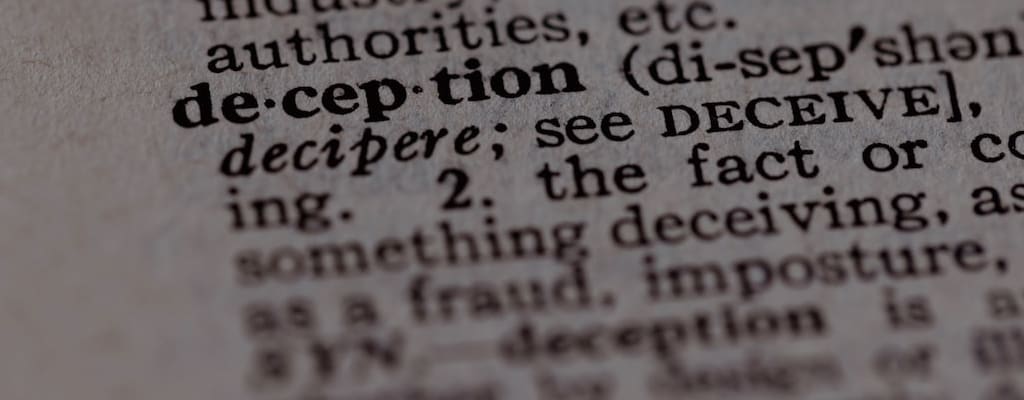white lie: Idiom Meaning and Origin
What does ‘white lie’ mean?
A white lie is a harmless or trivial falsehood, typically told to avoid hurting someone's feelings or to maintain social harmony.

Idiom Explorer
The idiom "white sheep" refers to a person in a family or group who behaves or is considered as morally superior or respectable compared to other members. It highlights the contrast between the person's behavior and that of their relatives or peers.
The idiomatic expression "white pee" refers to a phrase or statement that is full of lies or deceit, often intended to manipulate or deceive others. It conveys the idea of making false or misleading claims, similar to the colorless and odorless nature of urine when it is diluted.
The idiom "truth be told" is used to preface a statement in which the speaker is admitting or revealing something that may be surprising, candid, or contradicts previous statements.
The idiom "to tell the truth" means being honest and sincere in one's statement or confession.
The idiom "to be honest" means to speak or express one's true thoughts, opinions, or feelings without deception or dishonesty.
The idiom "tell the truth" means to be honest and not lie or deceive. It is often used in the context of revealing or sharing accurate information or facts without any distortion.
A "tall tale" is an exaggerated or fictional story that is often used to entertain or impress others. It may involve unbelievable events or highly exaggerated details, making it difficult to determine what is true and what is not.
The idiom "stretch the truth" means to exaggerate or distort the facts to make a story or statement more interesting or favorable.
"Small talk" is an idiom that refers to casual conversation or chit-chat about unimportant or trivial matters, often used to break the ice or fill awkward silences.
An idiom that refers to the spreading of false information or gossip about someone or something, often with the intention of damaging their reputation.
Unraveling Deceptive Fibs
The idiom "white lie" is a common expression in the English language, and its origin can be traced back to the early 1700s. It describes a harmless or trivial lie that aims to protect someone's feelings or avoid conflict. The term "white lie" is universally understood, and it has been widely used in various contexts throughout history.
One unique aspect of the idiom "white lie" is that the word "white" does not refer to the color itself. Instead, it symbolizes purity or innocence, qualities that have long been associated with the color white in many cultures. This association helps to explain why a lie that is perceived as relatively harmless or morally justifiable came to be described as a "white lie."
It is also interesting to note that the idiom "white lie" is often contrasted with other types of lies. For instance, a "black lie" is typically described as a malicious or deceitful falsehood, while a "gray lie" falls somewhere between a white lie and a black lie in terms of intent and impact. This contrast highlights the relatively innocent nature of a white lie.
The use of the idiom "white lie" is not limited to a specific domain, and it can be applied to various situations. It is commonly used in everyday conversations, as well as in literature, films, and other forms of media. The fact that it is so widely used underscores its enduring relevance and universal appeal.
Now let's explore how the idiom "white lie" relates to a couple of other idioms, namely "give the lie" and "polite fiction".
The idiom "give the lie" refers to the act of proving that something is untrue or false. It can be used to debunk a statement or accusation that is believed to be untrue. Although the phrase itself does not explicitly mention "white lie," the concept of giving the lie implies the exposure of a lie or deception, which aligns with the intent of a white lie.
On the other hand, the idiom "polite fiction" describes a situation where something is known to be false or exaggerated, but it is acknowledged and accepted to maintain politeness or social harmony. While the phrase "white lie" is not directly used in this idiom, it shares a similar intention of maintaining harmony, albeit with a focus on protecting someone's feelings rather than avoiding awkward social situations.
Both "give the lie" and "polite fiction" provide additional perspectives on the concept of a white lie. They illustrate the various ways in which deception or untruths can be employed to navigate social interactions, whether it is to protect oneself, others, or to preserve harmony.
The idiom "white lie" has a long history and is widely used in the English language. It refers to a harmless or trivial lie that aims to protect someone's feelings or avoid conflict. The term's association with the color white and its contrast with other types of lies further accentuate its specific meaning. Additionally, the related idioms "give the lie" and "polite fiction" shed light on different aspects of deception and untruths in social interactions. As language and society continue to evolve, the idiom "white lie" will likely remain a part of our vernacular, taking on new nuances and interpretations along the way.
Example usage
Examples of how the idiom white lie can be used in a sentence:
- I told my friend that her new haircut looked great, even though I thought it was a white lie.
- It's sometimes necessary to tell a white lie in order to protect someone's feelings.
- When the host asked if I enjoyed his cooking, I couldn't bring myself to tell the truth and instead told a white lie.
More "Deception" idioms



